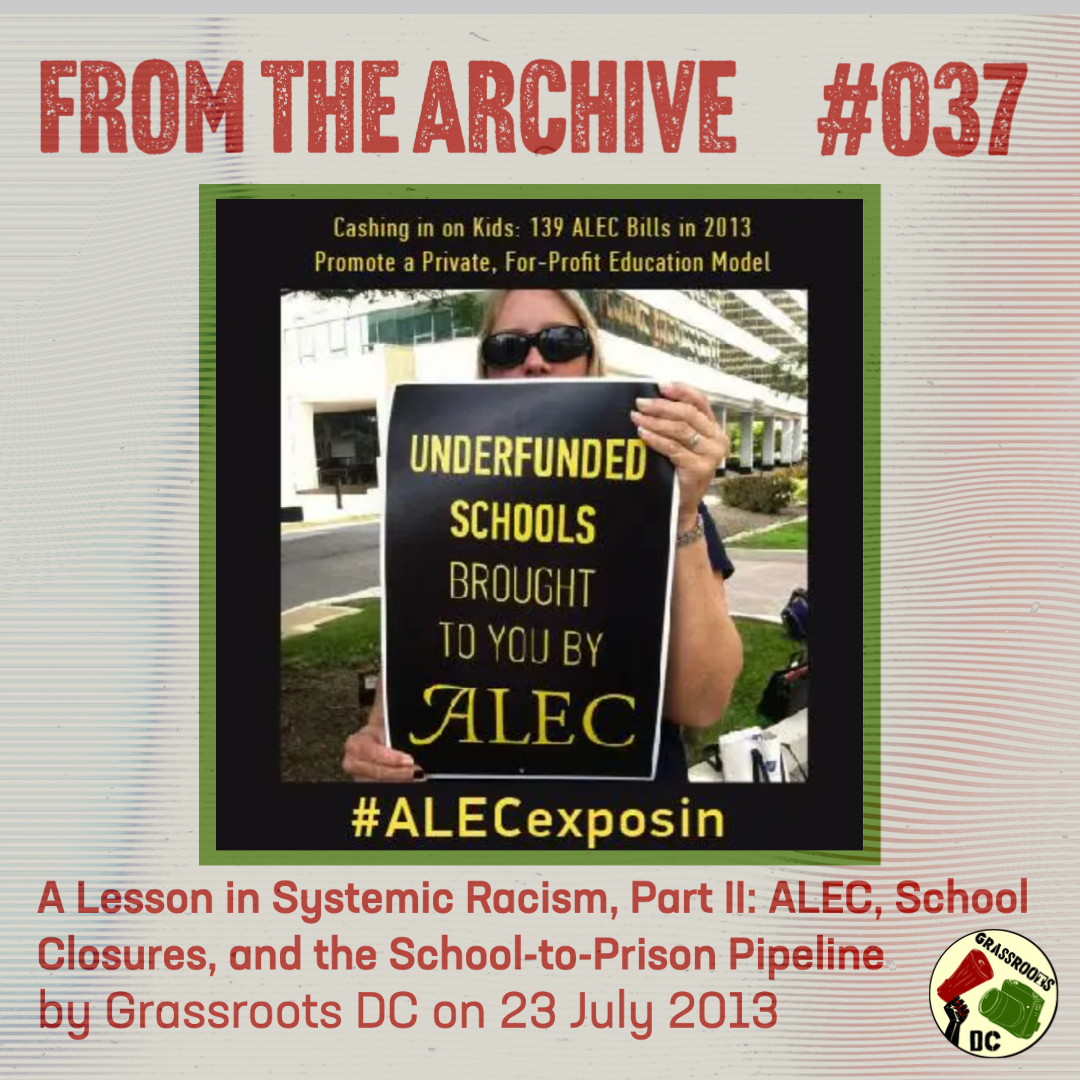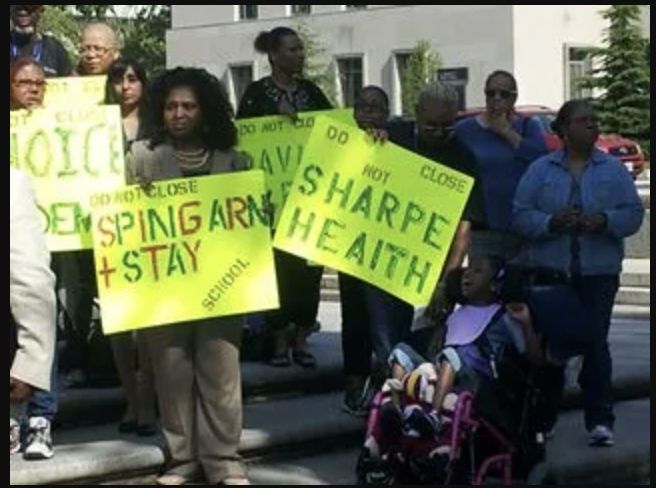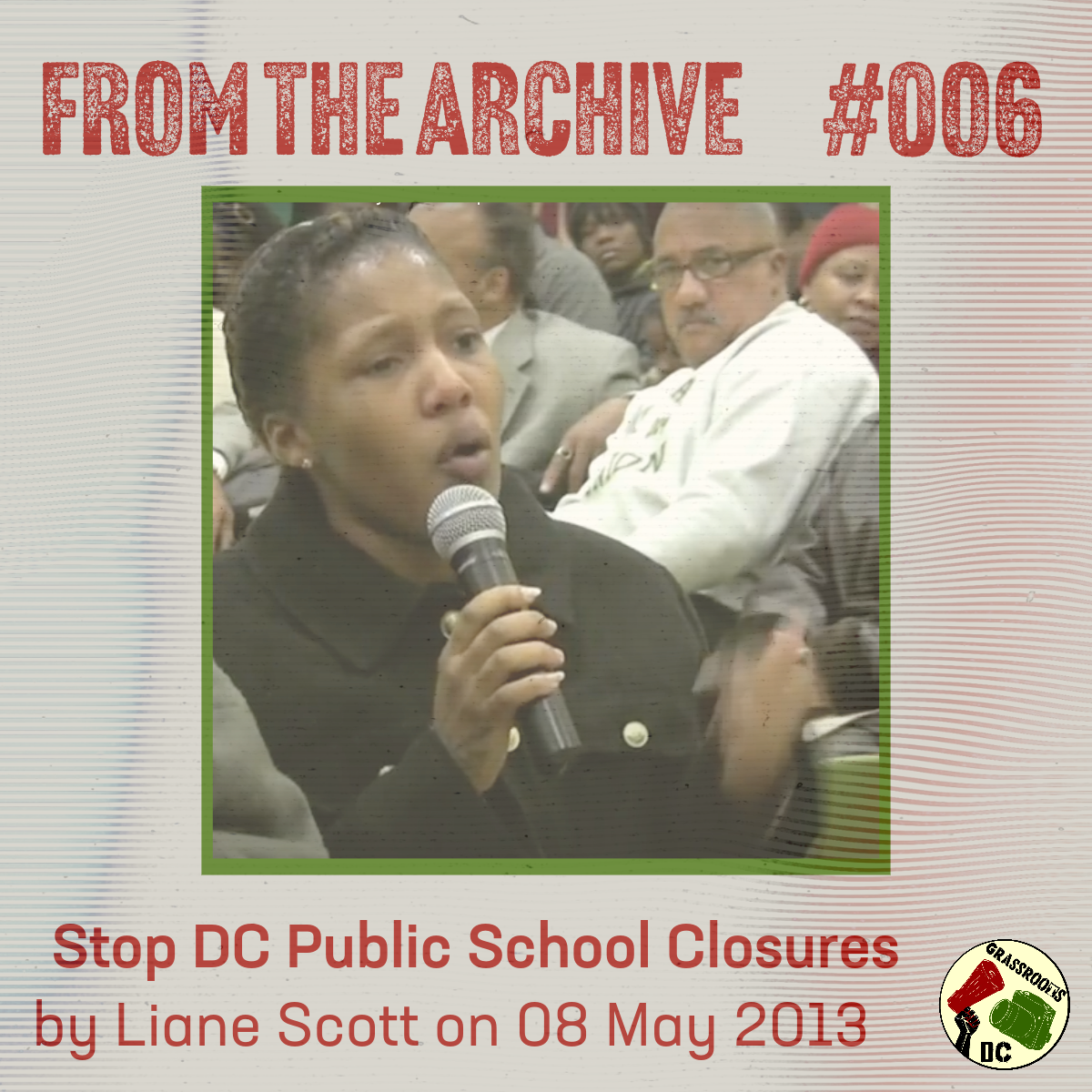Recent Posts

Biden administration called upon to end racial discrimination in D.C. public schools
D.C. government does not require schools to educate black students as well as white students according to a complaint submitted to the U.S. Department of Education by a D.C. resident.
Note from the editor:
This complaint was submitted just two days before the release of the Supreme Court’s decision on Affirmative Action admissions to universities. The author of this complaint, Jeff Schmidt, is a long-time DC resident and father of a student who graduated from DC public schools and then went on to graduate from college. Schmidt is a boomer, cisgender, white man, with a PhD in physics from the University of California, Irvine, who takes an active volunteer role in assisting DC public school science and math teachers in creating better curriculum.
It’s entirely possible for a student to get a good education in the DC public school system but it’s no easy task. According to the NCES’s National Report Card, only 17% of DCPS 8th graders are proficient at math.
After reading DC’s Education ESSA Plan, he sent the following letter of complaint to the US Department of Education. In it, he asks that they consider applying the same standards used in schools and classrooms with significant numbers of white students to every school and each student. Why don’t we do that? Why should we accept year in and year out that Black kids and white kids won’t be treated equally? Long after Brown v Board of Education, racism in DC public schools continues to be baked into the system.

A Lesson in Systemic Racism, Part II: ALEC, School Closures, and the School-to-Prison Pipeline
The previous post, entitled “A Lesson in Systematic Racism: Stand Your Ground, the NRA, and the American Legislative Council (ALEC),” examined the connection between the untimely death of Trayvon Martin and the powerful lobbying groups that made laws like “Stand Your Ground” possible. This post expands on the previous one by highlighting ALEC’s connection to school closures and the privatization of education.

Events Leading Up To DC Public School Closings Lawsuit
Although the injunction that would have stopped the closing of 15 DC Public Schools was denied and we’re still waiting to find out the date for the hearing that will decide the actual merits of the case, it might make sense to remind ourselves of the events that led to the lawsuit in the first place.
In my experience, the seeds for the lawsuit were sown in the first week of January, 2007, when the newly elected Council chair (Vincent Gray) dissolved the Committee on Education and the newly elected mayor (Adrian Fenty) announced his intention to take over the schools.
There was strong opposition to that idea expressed in testimony at the hearings and through protests and demonstrations. There was a call for the matter to be decided by the people in a referendum since a mayoral takeover required a change to the Home Rule Charter that would decrease the people’s power in determining their own affairs for themselves.

Stop DC Public School Closures
For those of us who follow the debate over school reform/school closings in the District of Columbia, the story of River Terrace Elementary School is not unfamiliar. In December of 2010, Schools Chancellor Kaya Henderson proposed that the school be closed due to under-enrollment. In January, a meeting was held at River Terrace Elementary to discuss the concerns of the community. Residents were angry about the decision to close the school and the lack of input from the community during the decision-making process. As you can see from the video below, many legitimate questions were raised; none of them have been answered.
River Terrace Elementary School is just one of the many Washington, DC public schools closed or threatened with closure since the reign of Schools Chancellor Michelle Rhee. Despite overwhelming community support, River Terrace was shut down. But the tide is turning. Although Rhee and her policies were in favor during the Administration of Mayor Adrian Fenty, the lack of improvement in test scores and the disruption to communities is causing many to think twice about reforming schools by closing them down.

